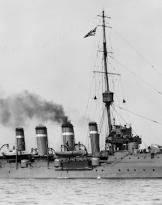Lo Junkers Ju 88 it was, in its own right, one of the most versatile aircraft of the Luftwaffe in the Second World War, almost as much as the de Havilland DH.98 Mosquito of the Royal Air Force.
Over the course of the war, German aircraft were used as bombers, dive bombers, night fighters, torpedo bombers, reconnaissance aircraft, heavy fighters and, eventually, even as flying bombs.
Conceived and designed by Ernst Zindel, Wilhelm Heinrich Evers and Alfred Gassner, the first prototype of Junkers Ju 88 took off on 21 December 1936 and was piloted by Captain Kindermann.
In the plans of the creators, and at the request of the leaders of the Luftwaffe, the Ju 88 it had to be a vehicle capable of "structurally aligning itself with the most varied changes in order to be able to be a high-altitude and dive bomber, a torpedo bomber, a reconnaissance aircraft and even a heavy fighter". The first model was followed by other modified ones; The Junkers Ju 88 of the first series - Ju 88A-1 – went into service in 1939.
Numerous variants were built Ju 88. Furthermore, the lesser known ones derive from the latter Ju 188, Ju 388 e Ju 488that Junkers Ju 488 (never entered service) can be considered the last wish to equip the Luftwaffe with a strategic bomber…

Overall, more than 15.000 specimens were made junkers 88, most of which as bombers and reconnaissance aircraft, while as fighters the number was very modest (according to estimates, it did not even reach 4000 specimens). However, "it is beyond doubt that the greatest feats were carried out by the night fighters, which inflicted very serious losses on the Royal bombers Air Force operating over Germany in huge formations between 1942 and 1945”.1
It should be noted that in this role the junkers 88 distinguished themselves much more than their “colleagues” Messerschmitt Bf110 and all other types of night fighters belonging to the night hunting – aeronautical specialty of the Luftwaffe – to try to hinder the terrible raids by Royal Air Force bombers.
- junkers 88, during the war, they were employed substantially on all war theatres. In fact, they took part in the invasion of Poland, at Battle of Norway, To battle of France and battle of england; they were used in the Balkans, Greece, and on the Eastern Front. They were also used in the North African campaign, in the Mediterranean – to remember the siege of Malta – and in Italy.
It should be emphasized that on December 2, 1943, a hundred Ju 88A-4 raided the Allied-held port of Bari; in that attack 28 ships were sunk and about 2000 people perished – military and civilian.
 Several squadrons of junkers 88 they also operated for the air forces of other nations, including the Regia Aeronautica and the Finnish Air Force. The latter, during the second Soviet-Finnish war, bought about twenty Ju 88 from Germany and were used to equip No. 44 Squadron.
Several squadrons of junkers 88 they also operated for the air forces of other nations, including the Regia Aeronautica and the Finnish Air Force. The latter, during the second Soviet-Finnish war, bought about twenty Ju 88 from Germany and were used to equip No. 44 Squadron.
Undoubtedly it can be asserted that the junkers 88 they were aircraft of high aeronautical and war efficiency, and perhaps "the best twin-engines – among those produced in a large number of specimens – owned by the Luftwaffe”.2
Lo Junkers Ju 88 (version A-4) had a wingspan of 20 m, length 14,4 m and height 4,8 m.
The empty weight was 9,860 kg, while loaded 12,105 kg.
Engine: 2 Junkers Jumo 211 J-1 or 211 J-2 V-12, power 1340 HP (each). The maximum speed was 470 km/h at 5300 m and the service ceiling was 8200 m.
The armament consisted of machine guns MG 81J of 7,92 mm and MG 81Z by 7,92 mm.
Bombs: up to 10 in the bomb bay and 4/8 externally.
1 See G. Bonacina, The Junkers 88, in Illustrated History n°193, 1973, p.112
2 Ibidem
Photo: Bundesarchiv / web












